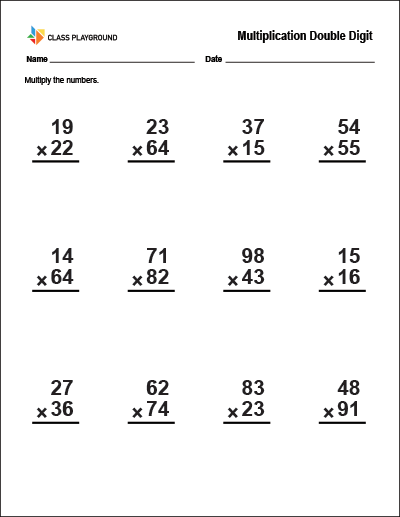Why Teach Multiplication?
Multiplication is a fundamental mathematical operation that forms the basis for more advanced math concepts. Mastering it helps students solve real-world problems, recognize patterns, and compare quantities.
What is Multiplication?
At its simplest, multiplication is repeated addition. For example, 3 × 4 means adding three four times (3 + 3 + 3 + 3), which equals 12. This operation is one of the four building blocks of arithmetic and is essential for developing number fluency.
Strategies for Teaching Multiplication
- Use Manipulatives: Start with hands-on tools like counters, arrays, and number lines. These make multiplication concrete by showing repeated groups and patterns.
- Introduce Times Tables: Build fluency with interactive multiplication charts. Begin with simple sets such as 2s, 5s, and 10s before moving to the more challenging tables.
- Connect to Real Life: Use word problems that mirror everyday experiences, like, “If one box has 6 pencils, how many pencils are in 4 boxes?” These examples help students understand how multiplication applies beyond the classroom.
- Use Visual Aids: Visual tools like arrays and number lines illustrate multiplication relationships and help students recognize structure.
- Teach through Games: Interactive games keep practice lively. For example, Basketball Multiplication turns practice into play, letting students solve problems as they shoot hoops and build confidence with their facts.
Classroom Activities
- Multiplication with Objects: Give students small items (like blocks or counters) to form equal groups and model multiplication facts.
- Times Table Art: Have students design “multiplication flowers” or posters where each petal or section represents a fact from one table. This adds a creative element to memorization.
- Word Problems: Provide scenarios connected to daily life—shopping, sports, or food—that require multiplication to solve.
- Multiplication Bingo: Create bingo cards with answers to multiplication problems. Call out equations and have students mark the correct product.
Conclusion
When you teach multiplication using manipulatives, visuals, real-world connections, and games, students not only develop fluency but also confidence. With a strong foundation in multiplication, they are ready to progress to division, fractions, and beyond—setting them up for long-term success in math.















